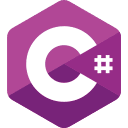The command line patch builder can be used standalone with the Developer Edition of Game Launcher Creator V3.
In order to use the standalone patch compiler, you must send all the necessary (and some optional) command line switches to it. We will cover them here.
Notes for using the CLI Patch Compiler
1. If any of your paths or filenames contain a space, you must send the switch parameter in ” “. For example, if the debug log path we send has a space in the path, we send it like this
/L"C:\Users\Local\Roaming\My Folder"
2. You must send your GLCV3 license over as a command line switch in order for it to work with your license.
3. It may look like the compiler has hung or has crashed, but it more than likely hasn’t. File scanning, copying and compression with our patch compiler is a quick and very intensive process. Let it play out. Although you should note, depending on the filesize, it may take a while to complete certain files.
4. Some files are already compressed, they don’t like being compressed again. If you see the compiler struggling on a particular file, please revise your patchlist and select Compression Level 0 for that file.
5. Some files like executables and in particular dll files, don’t like being compressed. If you see the compiler struggling or hanging on a particular executable or DLL file, please go back to your patchlist and select Compression Level 0 for that file.
6. It is highly advised that when you want to use the patch compiler, you should not use any other application or even use the computer until the process is complete. You should also terminate any other processes or apps running that could interfere with the process.
7. You may have to temporarily de-activate any antivirus software you have running.
Debug Log Path (/L)
This sends over a path/directory for the patch compiler to log the patch build debug log to. You don’t need to send a filename. Just a folder/directory/path will do. It must be the full, absolute path.
Example:
/LC:\myfolder
Files In (/i)
This is the full, absolute path to the parent folder containing your game files.
/i"c:\files in"
Files Out (/o) (not zero)
This is the full, absolute path to the folder to export the newly compressed/renamed files to. This folder doesn’t have to exist, the compiler can create it. You must ensure the compiler has permissions to create a directory there.
/o"c:\files out"
Custom Extension (/E)
Set a custom extension to use here. No need for any full stop (period). This will be appended to the filename. So if you wish to use GPC as the appended extension use
/EGPC
Patchlist File (/P)
Use this switch to instruct the compiler as to where it can find your patchlist file with your scanned file list.
/P"c:\my files\patchlist"
Salt file online (/S)
Please specify the full, absolute URL (including http:// or https://) to the salt file online. You must ensure this file is set to public permissions and the compiler can access it properly. Checks cannot be done for this as there’s no way for the compiler to verify what response is received.
You should use 8 – 16 random characters inside your salt file (and not use | or # characters)
/Shttps://myserver.com/files/salt.txt
License Verification (/M)
License verification is needed for the compiler to load. You should send your license in full as a command line switch using /M.
/M283928-JUHFUR-FJF8DF
Ignore Compression (/C)
This command line switch tells the compiler to ignore all compression for all files in the patchlist.
/C1
Patch Compiler Tips
Here are some helpful tips for developers and development teams when using the patching system and patch compiler.
- If you are using Unreal Engine, you should use the cooking and chunking routine before compiling your game files. Ideally, you need lots of smaller files rather than a few large files. This defeats the object of the patch system. Using the cooking and chunking method in Unreal 4 or Unreal 5, you can split your pak files up into lots more smaller ones.
- You can use this CLI application in conjunction with batch or powershell scripts. Most dev teams use generated powershell scripts to run this CLI patch compiler so everything is pretty much automated.
- Even though we stated earlier that if the patch compiler looks like it has crashed, but it probably hasn’t… there is still a line in the sand. Even large files (2GB+) should only take around 20 minutes (maximum based on slow computer specs). If it’s hung on one particular file for a suspiciously long time… it may have bombed. If this continues after a second attempt, either ignore the file in your patch list or try and cut the file down in size.







